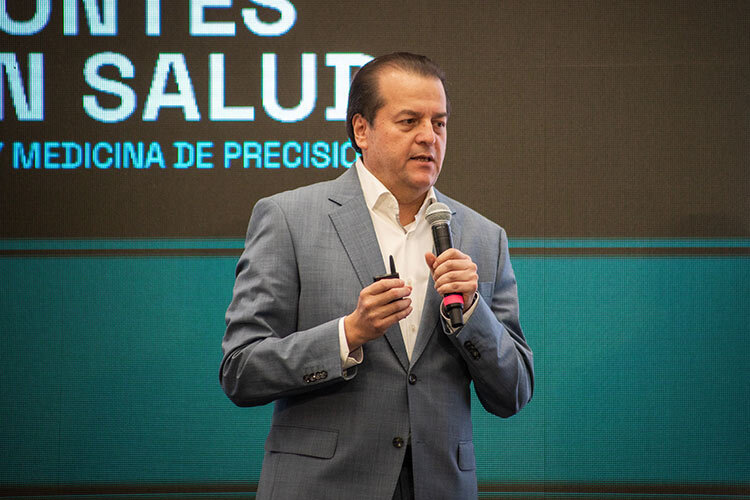Douglas Lowell Mann is a Professor of Cell Biology and Physiology at Washington University School of Medicine in St. Louis and he dedicates his work to the study of heart failure.
In fact, he says that obesity and being overweight (both in men and women) are the main risk factors for heart problems.
During his lecture at the second International Conference on Obesity Research, organized by Tec de Monterrey’s Institute for Obesity Research, Lowell explained that heart treatments can be effective, but only for 50% of people. There is a group that needs transplants or assistive devices.
Obesity and heart disease
There are several heart problems suffered by patients. Diastolic Heart Failure (HFpEF), for example, arises when the myocardium, the muscular tissue that pumps blood, cannot easily fill it.
Systolic Heart Failure (HFrEF) is another disorder in which the myocardium can’t contract properly and has trouble supplying blood to the body.
These disorders cause Left Ventricle Remodeling (LV Remodeling), a process in which the heart loses its capacity to contract; it thins and dilates.
Douglas says that therapies such as weight loss or metabolic management, as well as medical equipment or drugs, are insufficient following heart failure damage.
Instead, he believes that early intervention and prevention for overweight, obesity, and other risk factors can aid in the treatment of these medical disorders before they happen.
Irreversible damage
During his talk, Lowell mentioned that certain medications can help revert heart failure at some point, but that overall success is rare.
He notes that cardiac failure could be caused not just by individual incidents such as heart attacks, but also by chronic illnesses such as obesity, high blood pressure, and diabetes.
When failure happens, it reduces the ejection fraction, which is the rate at which the heart pumps blood.
This can have an impact on people’s quality of life and lead to further hospitalizations for heart failure or even death.
Although some individuals appear to have returned to “normal heart function” following different therapies, this occurs only in a minority of situations.
“There is usually a partial recovery after heart failure of around 40% to 50%. Unfortunately, there is a group of people who do not fare well and must rely on transplants and ventricular assist devices,” Lowell adds.

Lowell was one of the experts to speak at the Conference organized by the IOR (Photo: Alejandro Salazar / TecScience)
Prevention is key
Douglas discussed the outcomes of therapeutic therapies and interventions targeted at decreasing damage following left ventricular remodeling.
For example, therapies or ventricular assist devices (LVAD) can produce “Reverse Left Ventricle Remodeling (Reverse LV Remodeling),” which is the opposite of what happens with cardiac injury.
“This is sufficient to maintain cardiac function, at least for a short time. However, several molecular changes that occur during remodeling remain unregulated,” he explains.
Furthermore, he observes that, while scientific data suggest there is no complete recovery from heart failure, study in this field remains limited.
Douglas adds that people can be stable for several years or for the remainder of their lives after receiving therapy or treatments.
Despite getting the greatest available medications, these persons may experience progressively serious heart failures over time.
“This represents an opportunity for innovation and the discovery of new medications and treatments.”
In his closing remarks, Lowell emphasized that one of the finest current therapies is developing a culture that minimizes cardiac failures by preventing conditions.
“Weight loss and diet alone are not sufficient; there should be public health policies for weight loss and prevention therapies,” he says.


















